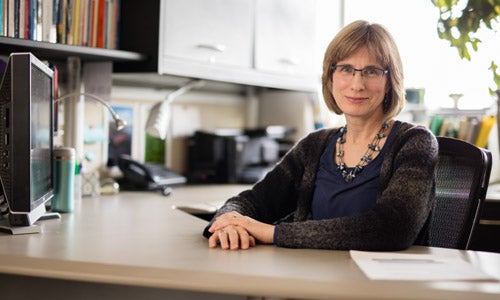Applied Health Sciences researcher is examining links between adolescence and Alzheimer’s disease
By Christine Bezruki

Using close to 100 years of data, Applied Health Sciences Professor Suzanne Tyas is researching whether factors like educational attainment and linguistic skills allow the brain to resist cognitive decline in old age.
The research could change the way we approach education during formative years and provide tactics for slowing the progression of dementia in at-risk individuals.
“Scientists have long known that factors in childhood and adolescence have critical impacts on brain development and health. But we now think that some of these early-life factors may also protect people from showing symptoms of Alzheimer’s disease more than half a century later,” said Professor Tyas.
Protecting your brain from decline
Working with the Nun Study, an extensive archive of data from the lives of 678 nuns, Professor Tyas is looking at the genetics, education and linguistic skills of women who displayed no symptoms of dementia while alive, yet had brains that revealed Alzheimer-type damage in autopsies. Her goal is to pinpoint exactly which factors allowed these women to resist displaying symptoms.
“Studying how these women differ from those who developed dementia can provide clues to prevent Alzheimer’s disease,” said Professor Tyas. “If individuals can avoid memory loss and other symptoms of dementia, regardless of what their brains look like, then we have reduced the impact of Alzheimer’s disease on the individual, their families and society.”
Nuns are ideal for learning more about diseases like Alzheimer’s because their stable lives and similar environments help rule out external variables. The Nun Study gives researchers access to documents over the course of the women’s entire lives, including report cards, essays and surveys. This kind of longitudinal information may just hold the answer as to why some women have the resilience to withstand Alzheimer’s disease many decades later.
“While there is no cure for Alzheimer’s yet, we are learning more about the disease and the factors that protect the brain from cognitive decline,” said Professor Tyas. “This work could shape the health of the next generation.”
Explore more life-changing research in the Applied Health Sciences Impact Report, Health in 3D